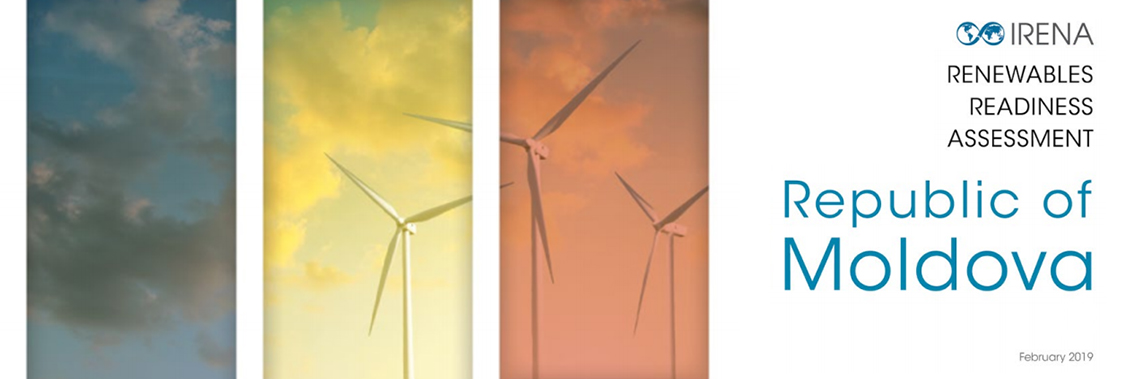The Republic of Moldova may be one of Europe’s smaller economies but the country is big on renewable energy potential. According to an International Renewable Energy Agency (IRENA) report in 2017, the cost-competitive potential for solar and wind energy alone across the country totaled more than 22 gigawatts (GW), and wind energy potential is among the most attractive across South East Europe.
The country’s energy policymakers are increasingly wise to this opportunity. New support measures for variable renewables have been introduced to stimulate further activity in the sector and national objectives to cover at least 17 percent of gross final energy consumption with renewables have been met ahead of time. Recently, an additional 168 megawatts (MW) of renewable energy capacity was announced.
In this context IRENA Director-General Adnan Z. Amin said Republic of Moldova’s policymakers are recognising that renewable energy can be an important means to address the country’s energy challenges and achieve a sustainable future through renewables.
Despite this, Republic of Moldova remains heavily import-dependent for its energy. Today, almost 70 percent of the country’s primary energy supply comes from imports and only 18 percent of its electricity needs are generated domestically. This presents not only economic challenges but also adversely affects the country’s energy security given its vulnerability to supply disruption.
IRENA’s new Renewables Readiness Assessment (RRA): Republic of Moldova report developed in close cooperation with the Government of the Republic of Moldova, in the context of IRENA’s South East Europe Initiative, outlines the steps necessary to set the country on an accelerated path to renewable energy development. It highlights that while the deployment of renewables – beyond biomass in the heating sector – has so far been limited, recently introduced support schemes for renewable electricity have piqued the interest of the country’s business community. Further measures are required, however, to build on this promise – fact recognised at the highest level in the country.
The recommendations outlined in IRENA’s report, therefore, represent an important contribution to national efforts. The report was also instrumental in building cooperation between the country’s public and private sector.
Read and download the Renewables Readiness Assessment (RRA): Republic of Moldova report
Original source: IRENA
Published on 19 February 2019

